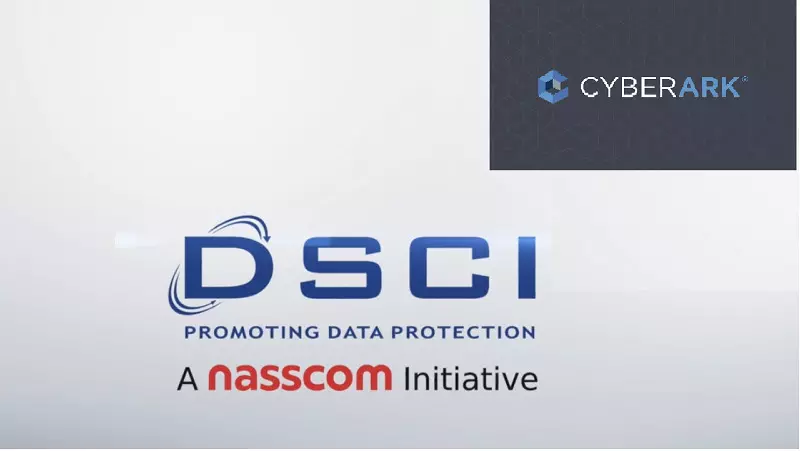CyberArk, DSCI Release Report, “Orchestrating Multi-Cloud Identities - A Unified Approach to Access Management”
The objective of this report is to highlight how, when properly implemented, SaaS solutions provide significant security benefits that can help organisations enhance their cybersecurity posture while managing complex IT environments
A joint initiative by CyberArk and DSCI

Hyderabad: CyberArk on Wednesday released a report developed with the Data Security Council of India (DSCI), an industry body on data protection in India. The report titled “Orchestrating Multi-Cloud Identities - A Unified Approach to Access Management” was launched during CyberArk’s annual flagship event in Mumbai, the Impact World Tour 2024. The objective of this report is to highlight how, when properly implemented, SaaS solutions provide significant security benefits that can help organisations enhance their cybersecurity posture while managing complex IT environments.
Vinayak Godse, CEO, Data Security Council of India said, “Over the past two decades, the cloud revolution has fundamentally transformed the digital landscape, with its momentum continuing to accelerate. As organisations increasingly embrace it, advanced SaaS solutions are emerging as key enablers, providing remarkable flexibility to meet diverse security needs. Also, SaaS platforms can be centrally managed for identity and access management across multi-cloud environments. They support seamless multi-cloud strategies, empowering organisations to maintain a unified and robust security posture across various cloud environments.”
Organisations not fully leveraging the power of SaaS
Critical sectors in India, such as healthcare, financial services, and government are prime targets for cyberattacks due to their valuable assets. Many organisations in these highly-regulated industries still rely on legacy systems that lack modern identity security capabilities, leaving them exposed to identity-based threats. While organisations in India are increasingly leveraging cloud services, uptake is still slow:
• By 2026, 60 per cent of global banks are expected to adopt SaaS platforms, which could reduce operational costs by 30 per cent, but progress is slow due to security and regulatory concerns.
• The SaaS market in the healthcare and pharmaceuticals sector in India is projected to reach US$42.13 billion by 2027. However, challenges around data privacy and legacy systems integration hinder larger growth.
• SaaS adoption in manufacturing and logistics in India is increasing at 15 per cent annually, driven by its potential to improve supply chain management and operational efficiency, but overall adoption remains slow.
The Benefits of SaaS
Despite misconceptions, SaaS can provide significant security benefits that enable organisations to enhance their cybersecurity posture while managing complex IT environments.
• SaaS has the ability to centralise identity and access management through Single Sign-On (SSO). This reduces password fatigue, simplifies login processes, and lowers the risk of phishing attacks by minimising credential use.
• SaaS providers utilise 24/7 security operations centers (SOCs) with AI-powered anomaly detection to monitor and respond to potential threats in real-time, enabling swift action before breaches occur.
• A key challenge for organisations is the 97-day delay in applying critical security patches. SaaS providers typically address vulnerabilities within hours or days, offering faster protection against emerging threats.
• SaaS solutions offer scalable security expertise that many smaller or niche organisations cannot afford to maintain in-house, reducing the cost and resource burden of advanced cybersecurity.
• SaaS providers offer end-to-end encryption for data in transit and at rest, along with data residency controls to ensure compliance with local regulatory requirements.
Emerging technologies such as AI, blockchain, edge computing, and quantum-safe cryptography promise to further enhance the security and efficiency of SaaS identity management. Organisations
that stay abreast of these trends and continuously adapt their security strategies are well-positioned to leverage the full potential of SaaS while mitigating risks.
Rohan Vaidya, Area Vice President, India & SAARC, CyberArk, said, "Contrary to common misconceptions, properly implemented SaaS solutions provide significant security benefits that can help organisations enhance their protection while managing complex IT environments. The key to successful SaaS integration lies in thoughtful implementation, chsing the right SaaS partners, and maintaining a proactive stance on security and compliance.”

